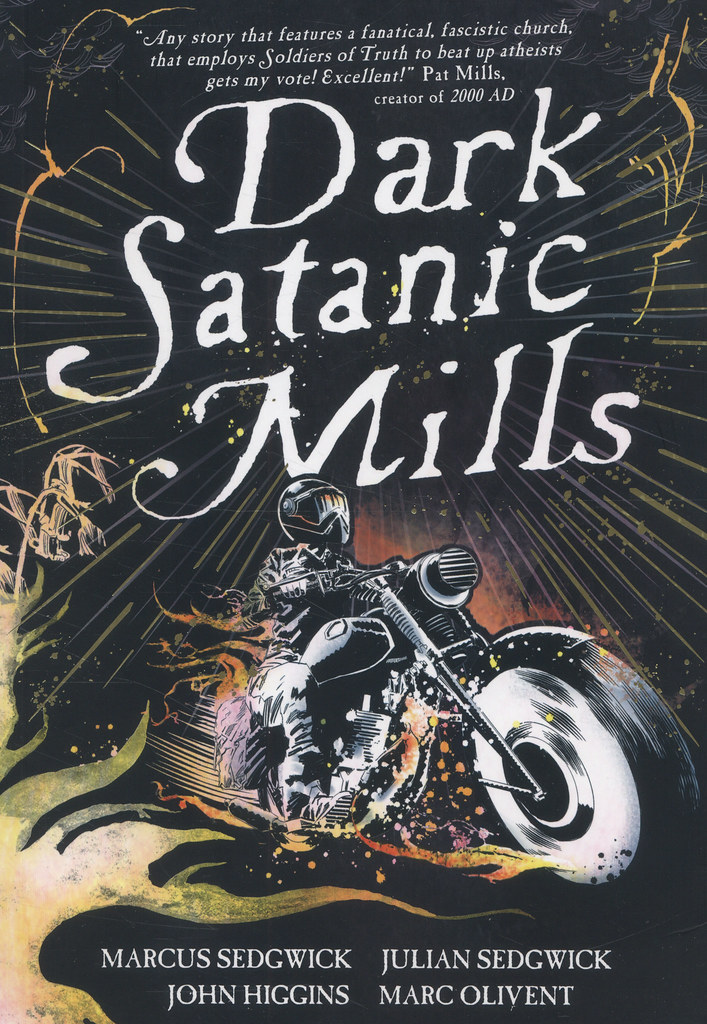2 minutes estimated reading time
Dark Satanic Mills immediately looked like the kind of graphic novel that I would like. I grew up with British dystopian science fiction with a fascistic bent. From the numerous franchises within 2000AD magazine to Alan Moore’s V for Vendetta.
The tone of these stories was set by a UK dealing with:
- Decolonisation and trying to work out its place in the world
- Economic chaos due to inflation, a shrinking manufacturing base and globalisation
- A battle of elites against working people
- The rise of right wing populist nationalism a la Britain First
- The rise of racism
It sounds rather similar doesn’t it?
The Sedgwick brothers Dark Satanic Mills fits right into this very British genre of graphic novels. The illustration style is similar to the stark black and white kinetic styles of 2000AD or Moore’s From Hell. It should be of now surprise that the jacket copy was written by Pat Mills of 2000AD. It almost felt like the baton was being passed on to the next generation.
The book has a premise that is similar to the body of work in 2000AD. It taps into Moore, channeling not only V for Vendetta, but also his love of mysticism.
William Blake’s Jerusalem and The Bible fit into a post-apocalyptic backdrop. Blake fits the bill perfectly: his association with the English identity often misused by ‘patriots’, his innate distrust in systems and of organised religion make his words the ideal foil.
The heroine Charlie is a dispatch rider who ends up in possession of a manuscript that will expose the populist government and the religious zealots it uses as a paramilitary force.
The religious zealots called the Soldiers of Truth are a chimera of Britain First and the droogs in Kubrick’s film adaption of A Clockwork Orange.
Charley ricochets around an England where rational thought, tolerance, logical analysis and experts are enemies of the state. It echoes Michael Gove‘s
“I think people in this country, have had enough of experts.”
Without giving too much more away, the story finishes in an ambigious way leaving Charley and the authorities open to a future largely unwritten. Again the ambiguity of a post-Brexit future is an obvious analogy. The fact that Dark Satanic Mills was published in 2013 makes it feel curiously prescient: a parable for our times.
